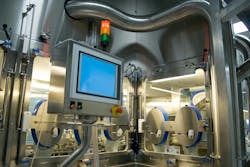Manufacturing Outlook for 2025
Looking ahead to 2025, manufacturers are expected to continue to face a challenging business climate due to a combination of higher costs, potential policy changes following the US elections and geopolitical uncertainty, according to Deloitte’s report, 2025 Manufacturing Outlook.
Examining key factors, the report noted that the National Association of Manufacturers Q3 2024 outlook predicts raw material and other input costs to grow by 2.7% over the next 12 months. A mitigating factor, however, is that lower interest rates have the potential to fuel investment which could spark higher demand for manufactured goods.
On the other hand, even with the “soft landing” that the Federal Reserve feels it can achieve, there is a risk that the recent cooling in the labor market could accelerate, potentially leading to an economic slowdown. So, if unemployment increases, consumer spending could decrease.
On trade policy, which would impact supply chains, tariffs could drive up raw material and component costs and could have ripple effects throughout the supply chain.
Given these circumstances the report identifies five trends that will shape the industry this year. These include:
1) Ongoing talent considerations. Deloitte research found 1.9 million manufacturing jobs could go unfilled over the next 10 years if talent challenges are not addressed. The report details how manufacturers will need to develop long-term strategies to address this impact.
2) The role of advancing tech. Deloitte found that 55% of surveyed industrial product manufacturers are already leveraging gen AI tools in their operations, and over 40% plan to increase investment in AI and machine learning over the next three years. The report explores how manufacturers are applying advancing technologies.
3) Supply chain strategies. Deloitte analysis found manufacturers are leveraging a variety of technology solutions, including the Internet of Things, data analytics, AI and machine learning, and advanced demand planning, to bolster supply chain efficiency while also addressing unique constraints.
4) Clean technology investments. Deloitte analysis suggests that for industrial manufacturers, aspirations to electrify and decarbonize their products to meet scope 3 emissions goals seem to be holding steady in 2024. Several factors may impact these plans in the coming year, including regulatory pressures, interest rates, and cost.
5) Policy and investment shifts. The result of global elections will hold potential changes in how the industry manages investments and policy priorities.
The report concludes that even with all of these challenges, there are “new approaches and tools that can be leveraged across the business to maximize efficiency, build resilience, and prepare for a potential new era of industry expansion.”
To back this up, the company’s Q3 2024 US economic report, predicted that investment in technology could result in an uptick in productivity and accelerated GDP growth over the next several years.
Companies can take advantage of targeted investments in their digital and data foundation, advanced technologies such as:
- Advanced talent planning and management tools that can support a skills-based approach, lead to better retention, and build a workforce for the future.
- AI and generative AI to enhance customer service, retain the knowledge of retirees, and bring new products to market faster.
- Supply chain digitalization and tools like AI for advanced analytics and value chain simulation.
- Smart operations use cases such as leveraging extended reality for efficient workforce training or customer support.
- Technologies like the model-based enterprise that can support seamless collaboration with new partners and customers, which may be necessary to bring innovative low-emission products to market.
